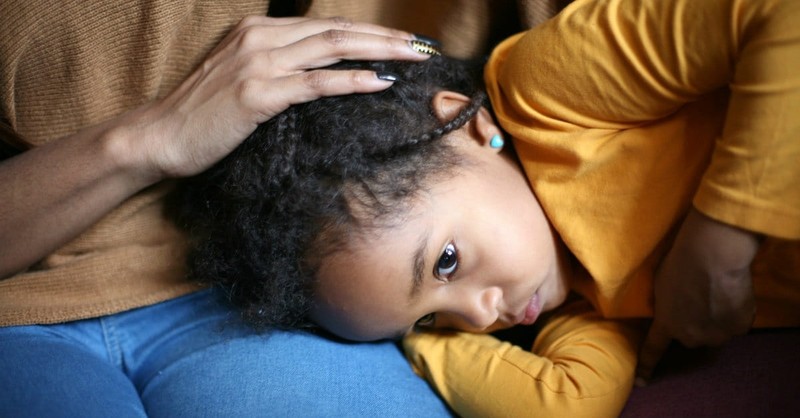10 Hidden Consequences of Divorce (Especially if You Have Kids)
- Sue Schlesman Crosswalk.com Contributing Writer
- Updated Jan 17, 2019

If you’re considering divorce or you have recently entered the process, you have already experienced months or years of struggle with your spouse. You are familiar with emotional distance, insecurity, fear, depression, anger, and perhaps betrayal. Life has become so difficult that divorce seems like the only path toward peace and happiness.
In an attempt to keep you from being blindsided, please be aware of some new struggles that are headed your way after divorce. Although knowledge can’t diminish reality, sometimes it helps ease the blow if you know what hidden (and obvious) consequences will follow your decision.
Photo courtesy: ©Thinkstock/Six_Characters

1. Grief
Divorce is a death of a union, and therefore the death of a dream, a promise, a life, and a family unit. Everyone involved—even a perpetrator—will feel grief and loss during a divorce. If there are children involved, they will experience severe grief over the loss of being with both parents together, living under the same roof. They will feel a familial loss. Divorce also separates in-laws. Grandparents lose their daughters or sons-in-law; they might lose easy access to their grandkids, or they might have to assume a parental role to help their son or daughter. Grief hits every part of a family during a divorce.
Photo courtesy: Unsplash.com

2. Trauma
Divorce marks a pivotal moment in a person’s life, especially for children; life as they know it changes forever and they become different versions of themselves, adapting to new routines and new versions of their parents (who have also changed). They might move to a new home, new school, or be a part of a new step-family. Often, children take responsibility for their parents’ divorce, internalizing guilt and regret over the break-up. Even normalizing the widespread acceptance of divorce and step-families in our culture can’t diminish a child’s trauma at losing his/her parent from the home, especially to someone else like a new wife or step-child. (55 percent of divorcees will remarry.)
Photo courtesy: ©Thinkstock

3. Relationship with the Ex-Spouse
Couples get divorced because they want to stop talking, problem-solving, and living with their spouse. However, if they have kids, not only do they have to stay in contact with one another, but their communications skills (which were bad before) actually must improve. Parents must still work together to solve problems concerning their children, which now involve a tug-of-war over time, money, influence, gifts, vacations, etc. And to make things harder, there will likely be new spouses influencing these decisions. Parents still have to figure out how to get along.
Photo courtesy: ©Thinkstock/DesignPics

4. Financial Stress
The average divorce proceeding in America costs between $15,000-$20,000, plus relocation and replacement expenses after the household items are divided up. In addition to child/spousal support, two households typically require double bedrooms, vacations, toys, and clothes for the kids who travel back and forth between their parents; it’s more money out of both parents’ pockets. Unfortunately, the average single mother earns only $36,700 per year.
Photo courtesy: ©Thinkstock/lolostock

5. Emotional Problems
Following a divorce, parents and children often experience emotional problems that can last for years, even for the rest of their lives. Anxiety, depression, fear of abandonment, distrust, insecurity, lack of intimacy, confusion over sexuality and/or gender, guilt, avoidance of conflict, faithlessness, control, loneliness, bitterness, and rebellion manifest themselves in children who have lived through a parents’ divorce.
Photo courtesy: ©Thinkstock/alien185

6. The Chance of Another Divorce
60 percent of divorcees who remarry will divorce again; third marriages dissolve 93 percent of the time. Why? Perhaps people don’t work on their issues; perhaps they’re too busy trying to survive. Realistically, most people carry their issues into the next marriage (along with the new baggage from their last divorce). Very often, people are also attracted to the same type of person as they were before.
Photo courtesy: Pexels.com

7. Losing Friends
Most divorced people, while they remain single, eventually find new single friends. At some point, they begin to feel awkward in their previous married friends’ circles. Divorcees also lose married friends if those friends feel pressured to choose sides; they may choose one spouse over the other, or they may jettison from both friendships to avoid further conflict.
Photo courtesy: ©Thinkstock/Milkos

8. Dividing of Memories and Belongings
While household items and family photos don’t hold a lot of intrinsic value, dividing them between parents can be heart-wrenching because household items represent memories and commitment. Family photos capture times of love and unity that can be both painful and precious. Just like going through the belongings of a parent who’s died, dividing up a household between spouses (or even if one person keeps it all) brings feelings of heartache, resentment, and regret.
Photo courtesy: ©Thinkstock/Halfpoint

9. Holidays
Divorced parents will have to share the kids on holidays or rotate holidays. Either way, that leaves one parent alone or without their kids on some of the most sentimental and nostalgic days of the year. Other important days, like graduations, birthdays, and weddings become events that must be shared by both parents simultaneously, which can create tension if the exes have not figured out how to be cordial to one another and one another’s new spouses (if they exist). A lifetime of uncomfortable holidays is not something most people want.
Photo courtesy: ©Thinkstock/Kerkez

10. Singleness
Singles comprise 43 percent of America’s adults. If you’re in a bad marriage, singleness looks attractive. But once you’ve been married and you find yourself divorced, you probably aren’t so comfortable back out there in the dating world. Divorcees must navigate singleness very carefully, especially if they have kids. Without another parent in the home, single parents tend to rely heavily on neighbors, boyfriends/girlfriends, and extended family to babysit when they can’t be home. Another caution here is dating itself—having a potential new mom or dad in and out of the house is emotionally confusing and traumatizing for kids. If you date with kids in the house, be wary of exposure and attachment until you feel confident about the security of the relationship. Children of divorce are especially susceptible to feeling abandoned and unwanted. You might consider remaining single until the kids are grown.
“If it is possible, as far as it depends on you, live at peace with everyone.” (Romans 12:18)
Sue Schlesman is a Christian writer, teacher, blogger, and speaker. Her blogs, fiction, and non-fiction reach a wide audience. She has a BA in Creative Writing and is earning a MA in Theology, Art, & Culture. Her book Soulspeak: Praying Change into Unexpected Places comes out in 2019. She is the Content Editor and Writer at www.themystoryproject.com. You can find her philosophizing about life, education, family, and Jesus at www.susanwalleyschlesman.com.
Photo courtesy: ©Thinkstock/NADOFOTOS



















